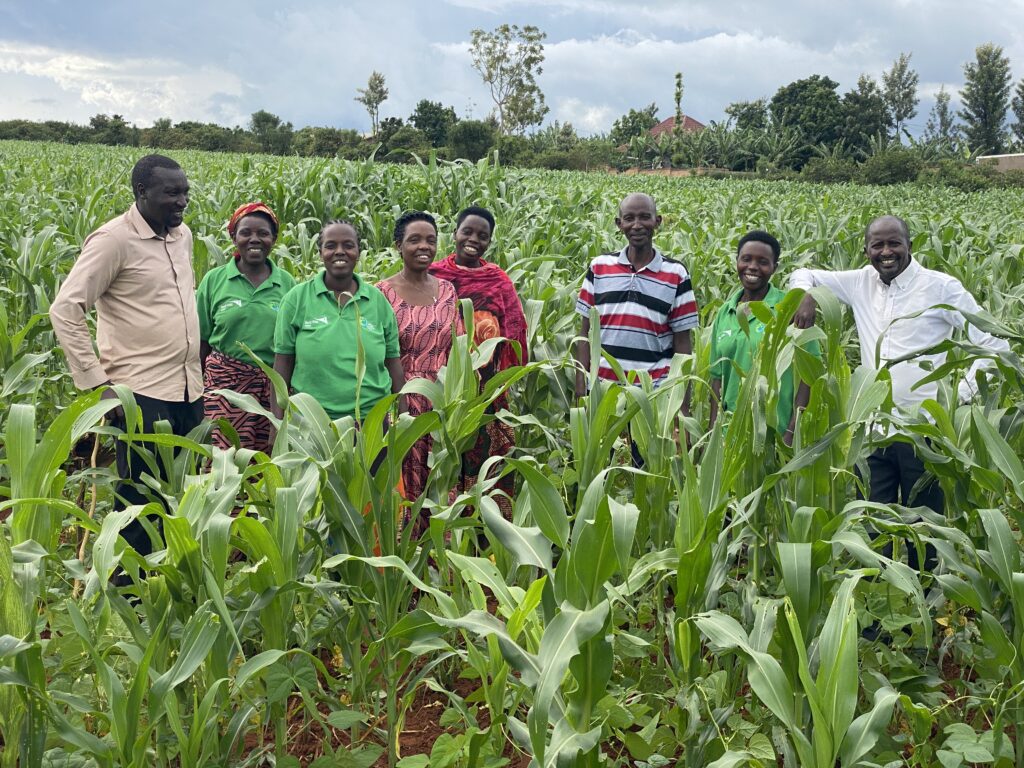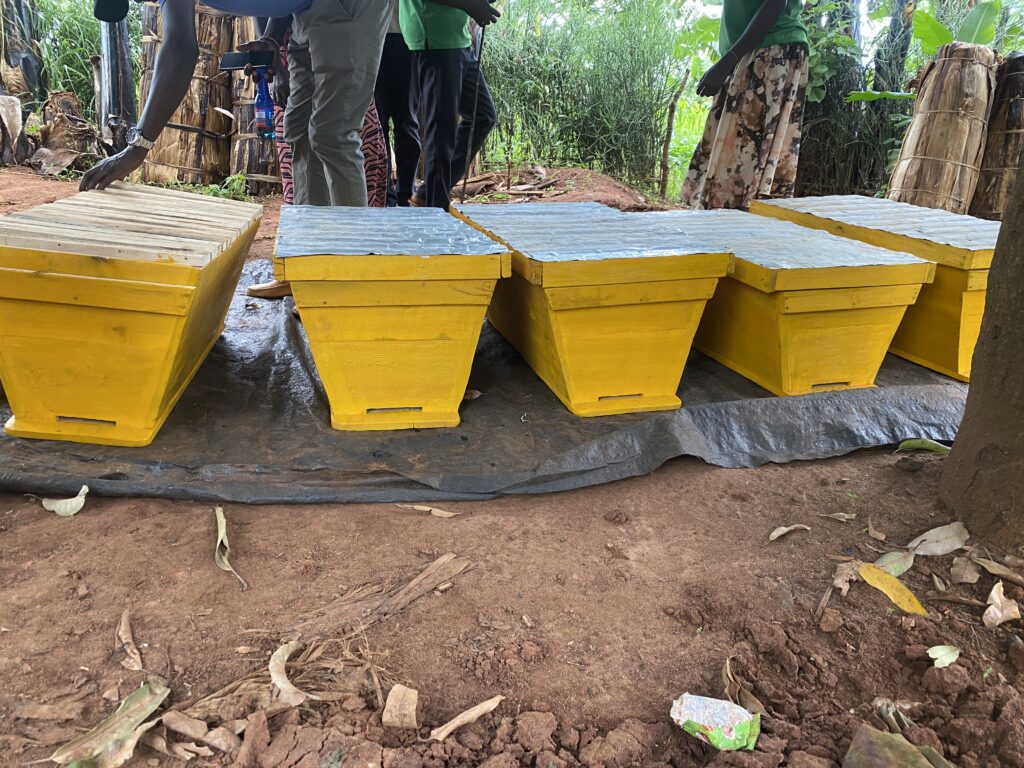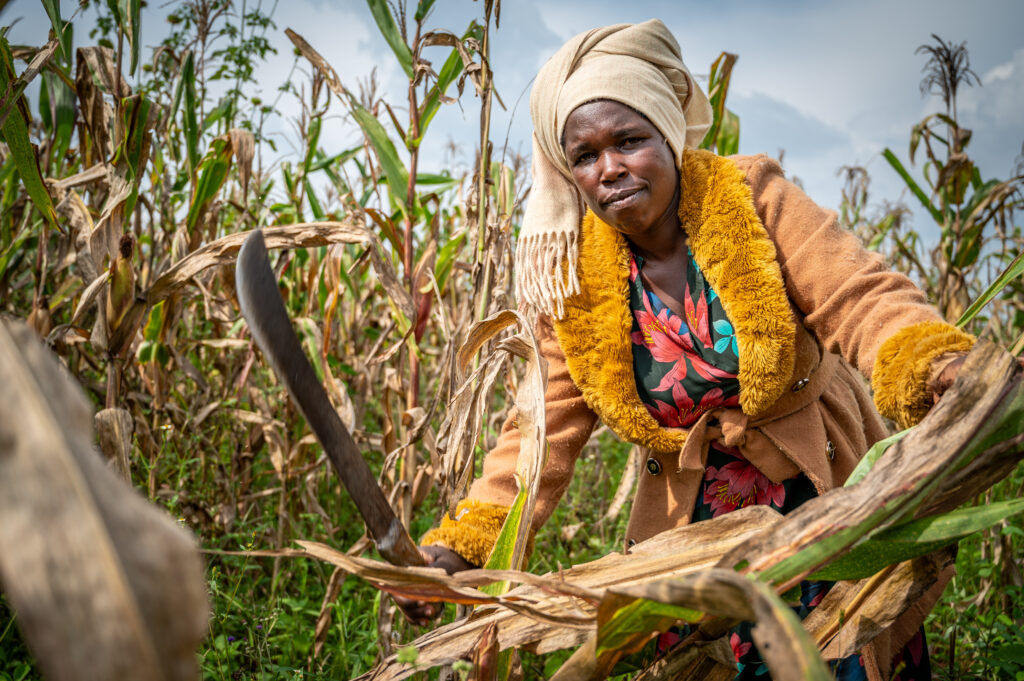Financial literacy serves as a cornerstone for individual and community empowerment, providing the essential knowledge and skills required to navigate the complex economic landscape in low-income areas, such as Nyagatare District. Cordaid’s TREPA project enhances the economic situation of the population in this rural region in northeastern Rwanda.

TREPA (Transforming Eastern Province Through Adaptation) is funded by the Green Climate Fund (GCF) and equips the community with essential skills through a series of comprehensive training sessions on topics such as saving groups, climate change awareness, and climate adaptation. This helps participants gain an understanding of financial management and learn how to engage with formal financial institutions effectively.
‘Before TREPA, many of us had little knowledge about saving, financial planning, or how climate change was impacting our livelihoods,’ says Mukamwiza Donathile, leader of the Tubungabunge Ibidukikije (Let’s Save the Environment) savings group.
‘Through the training, we gained many valuable skills. For instance, when we were short of money for our maize farming project, we successfully secured a loan from our local savings and credit cooperative.’
Sustainable and Climate-Resilient Farming
Designed to support small-scale, environmentally sustainable projects, the Umusave Fund, a community-based financial initiative established by the ARCOS Network, provides accessible financing to local groups, particularly those engaged in green micro-projects and climate-resilient agriculture. Donathile: ‘This kind of support has empowered us to invest in sustainable farming and build a more resilient future for our families and our environment.’
The training laid the groundwork for action. People have acquired practical skills and formed savings groups, which have since fostered a culture of trust, cooperation, and collective ambition. These groups not only pooled resources for self-financed development but also demonstrated their financial viability by securing competitive loans from the Umusave Fund. This achievement showcases their growing financial confidence and potential for sustainable growth.
‘Our vision is clear: within the next three years, we aim to own a large farm equipped with an irrigation system to help us withstand the effects of climate change.’
Diversification
Previous lessons from interventions have established that in many rural areas, agriculture alone does not provide sufficient livelihood opportunities. When rural households diversify their income sources by combining two or more income-generating activities, they are more likely to get through any crisis.
Through the TREPA project, the formation of savings groups has facilitated the launch of diverse income-generating projects, marking a significant step toward economic self-sufficiency.
For instance, Tubungabunge Ibidukikije, propelled by the training, took an entrepreneurial leap by investing 500,000 Rwandan Francs (approximately 306 euros) in beekeeping. This investment, in conjunction with the maize business, led to the establishment of 12 modern beehives alongside 15 traditional ones. The success of the savings group not only diversifies their income streams but also contributes to local biodiversity and the broader sustainability of rural livelihoods.

‘Once we harvest and sell our maize, we will be able to repay the bank loan, lease a larger piece of land to increase yields, and then buy more beehives,’ says Karishema Innocent, leader of the Igitinubuzima savings group. ‘Our vision is clear: within the next three years, we aim to own a large farm equipped with an irrigation system to help us withstand the effects of climate change. We also anticipate harvesting around 300 litres of honey per season.’
Challenges in Scaling
Despite their ambitions and clear goals, the community is also facing a significant challenge. ‘One of our biggest problems is the shortage of trained financial professionals, especially accountants, who can accurately track and record our transactions and generate reliable financial reports,’ Karishema says. ‘This may limit our ability to access more financial resources, scale our activities, and ensure transparency. Addressing this need is critical for our group to grow and operate sustainably.’
While this challenge persists, the groups have exhibited a high degree of resilience. Their successes are due to the value of investing in capacity-building and the strength of community-led economic initiatives. With ongoing support, the groups are well-positioned to surmount their challenges and broaden their impact, promoting financial stability and creating new opportunities for rural families.
About TREPA
The Transforming Eastern Province through Adaptation project is a six-year initiative (2021–2027) aimed at restoring degraded landscapes and enhancing climate resilience in Rwanda’s Eastern Province. Funded by the Green Climate Fund (GCF) and the Government of Rwanda, the project is implemented by the International Union for Conservation of Nature (IUCN) in collaboration with the Rwanda Forestry Authority (RFA), CIFOR-ICRAF, Enabel, World Vision, and Cordaid.

The project demonstrates Cordaid’s commitment to fostering sustainable, locally-led community transformation. By prioritising financial education and creating platforms for community collaboration, the TREPA Project has shown that even in the most remote areas, significant progress can be achieved.
By supporting financial inclusion, promoting local entrepreneurship, and addressing key challenges such as financial literacy and technical expertise, we can contribute to the long-term prosperity of rural communities.